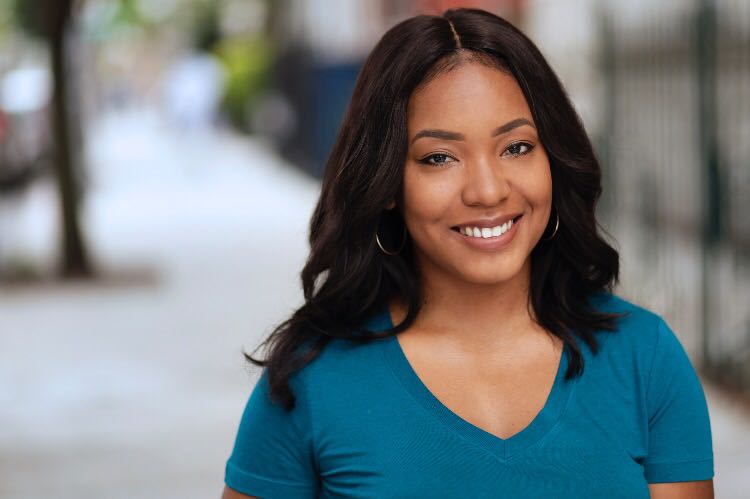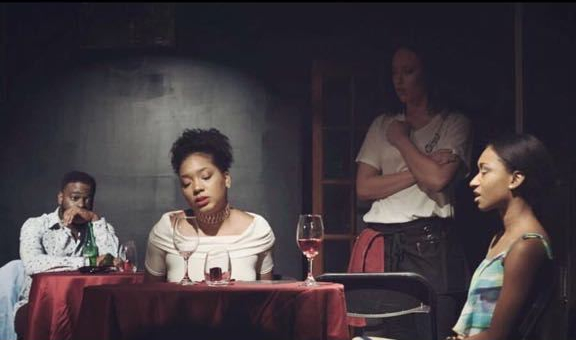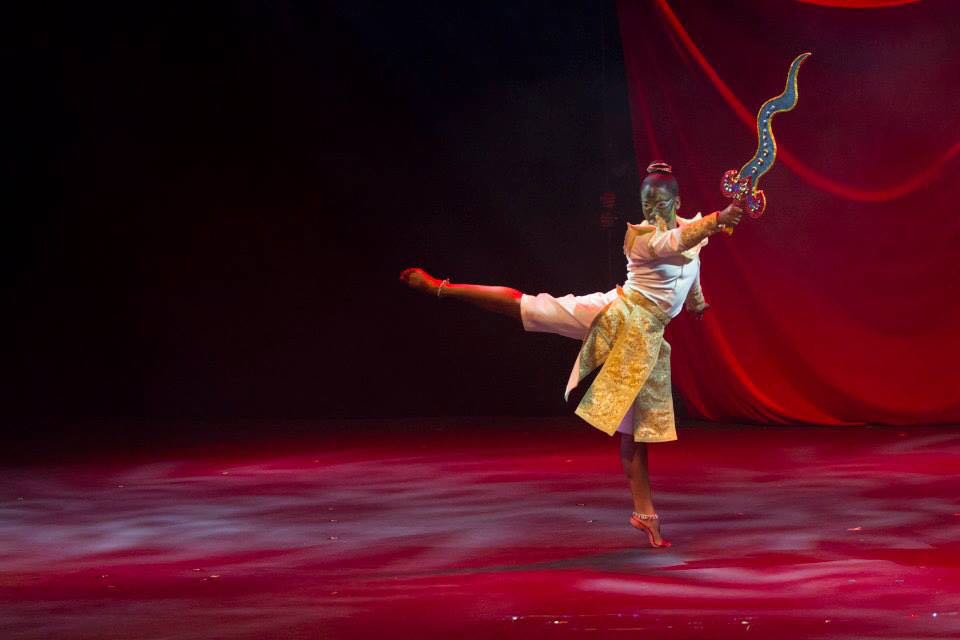An interview turned life lesson with Trinidadian Actress, Ramona Tim Kee
There was no way this was going to be one of those interviews where a list of questions would be emailed out, and returned to me with carefully crafted responses, not when Ramona Tim Kee's presence is her truest representation. I would not even have a voice recorder between us, for me to transcribe later, because with her, it is less about the "what" she says; less about the places she has been, or productions she has been a part of, or the people with whom she has worked, and more about the "Who" she is and the "How" she engages.

It is the second time I have been honoured to cook for her, each time wearing what she says is her favourite Bene Caribe piece; a wrap I wear as a head scarf sometimes, sometimes a dress, a top or a cover-up. I perform the best in the kitchen, when preparing food for people I love. A quick cook starts when as I receive her text message, saying that she is on her way to my apartment. Chopped broccolini, grape tomatoes and sliced mushrooms sizzle in a wide flat pan. She arrives in time for me to serve it hot. A creamy rice bowl, with colourful vegetables, chunks of fresh marinated mozzarella and a side of crusty bread. Mine wears Kalamata tapenade, but hers is topped with tahini and salt, because Ramona doesn't like olives. Two Trini women sit together in a Brooklyn apartment, eating a meal inspired by Mediterranean cuisines, cooked in organic coconut oil. Life's scenes are a poetry.
"I was 10 times more then than I am now." She says.
It is hard to imagine Ramona any grander than she already is. She is loud, and bold. She once had me take a picture of her lying on the floor at the World Trade Centre; one of the busiest commuter thoroughfares. She dances constantly. She makes ridiculous Instagram Stories, featuring oddballs on the train. She is unembarrassable. Yet, she told me that because she was bullied throughout her younger years for it, she has learned to tone down her animation. These formative years have remained a sacred period to her, as the focus of her Acting Career, is geared towards fostering dance and theatre for children in developing countries. Confessing her feelings of intimidation when she first started Dance in New York, she passionately details how young performers-in-training in the Caribbean are at a disadvantage. There is just not enough of the resources required being pumped into the Arts back home. Ramona's mission is to make dance available to all children, believing that artistic self-expression is very important to all peoples. She teaches Caribbean dance in New York when she can, a fun up-beat class disguised as a workout, and a weekday highlight for all her students who love learning the Soca moves.

She was always a natural. "I used to wine as a child." she responds when I ask about how the interest in this career was piqued. "My mother thought putting me in real dance would show me how to really use my body, but it showed me how to use my waist." So that's where she get's it from! She tells me of her time at Noble Douglas Lilliput Children's theatre, her University degree in Mass Communications at St. John's, where she ironically took her first theatre class, and all the other companies she was hired for, the training she received, and roles she performed. Countless hours of professional grooming, and yet when I see her work, it seems just natural. It looks like it comes too easily. And she agrees; she knew she had a knack for performing Arts, but she would never believe she was actually good at it until receiving feedback from major influencers in her life.
Her favourite role would be King Simon of Legree in "The King and I" for First Instinct Productions in Trinidad. She explains that the role came at a time when her confidence was low, and playing the King made her feel strong. I listen to my friend, who seemed to be the most self-assured, energetic, bravest young woman you could ever meet, and I hear her repeatedly tonight, talk about self doubt. I realised that this interview would become a story about motivation and relentless goal-chasing, instead of solely a highlight of Caribbean talent being recognised overseas. And this is perfect, because while I have been honoured to learn about the amazing triumphs of other Caribbean heroes I have spoken with for this blog, it is a welcome new taste, to hear the back story of a star in the making-- a place in the journey to success where so many of us feel stuck, wondering if we're headed in the right direction, or if we are in reverse.
[caption id="attachment_166" align="alignnone" width="960"] Ramona as King Simon of Legree in "The King and I"[/caption]
Ramona as King Simon of Legree in "The King and I"[/caption]
"How has being from the Caribbean set you apart as an artist?"
"It makes it harder." she begins. "I was told I could only ever play the Maid or the Nanny; that there are no other roles for Caribbean women. And while I have taken accent reduction classes, I'm not trying to sell myself as anything but a Trinidadian actress. There are roles for us. We are real brilliant, educated, powerful women in New York. How can we only be fit to play the help?"
There have been scripts redesigned to accommodate her authentic heritage, proving that her dedication to remaining who she is, is not in vain. But it is hard as she says. In Caribbean countries, particularly Trinidad and Tobago, there is a focus on academics, landing a big job in Petroleum, or any other high paying office job. We have excellent medical training throughout the islands and multiple engineering disciplines being taught at UWI, but there aren't enough solid opportunities for Art to be a full-time career. As Ramona put it, there are so many people miserable at their jobs, because they are meant to be artists. Ramona believes in the talent we have in the Caribbean, and imagines how impressive our own version of Broadway could be, if we only had the financial investment. She is one of many West Indian born actors I have met in New York, all expressing similar dreams. Giving more attention to our Dance and Theatre would be so good for the Caribbean. So many talented people feel stifled without the opportunities to express themselves; the outlets to tell their Caribbean stories. For a moment, we each fantastise about a Caribbean coloured with constant stage acts. People flying in to see it. A Caribbean famous for more than Carnival and Crime. Her words.
"Do you think you will make it big?"
I didn't expect the long pause.
"Yes." She eventually says unblinking.
"There are moments when I do question it, but I think, I don't want a boring life. To struggle makes a much more interesting story. Don't you think?"
